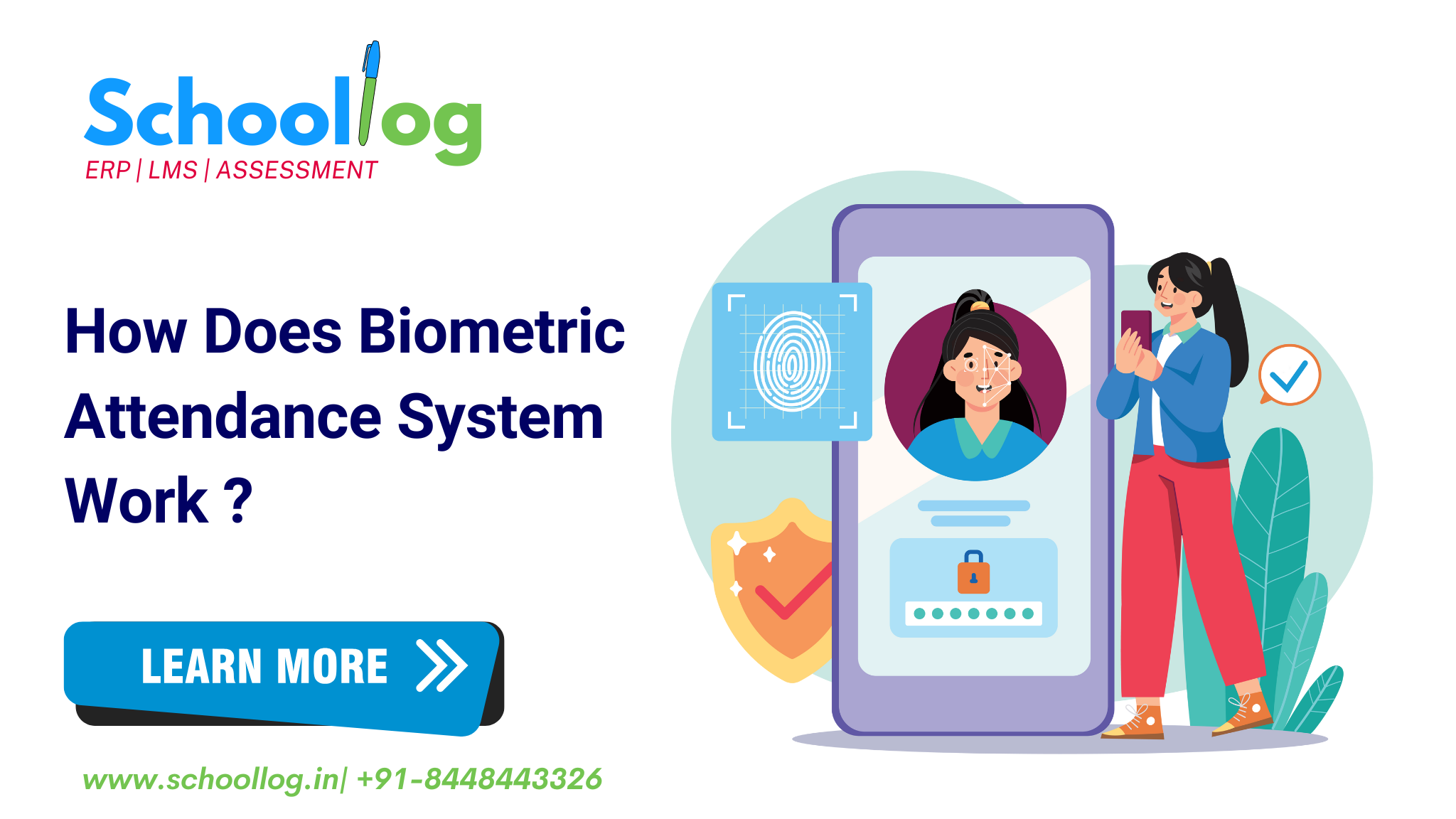Blogs
📋 Table of Contents
How a Biometric Attendance System Works: Complete Guide for Schools

27 Aug, 2025
In the modern digital world, where speed is the order of the day, modern technologies are being progressively used in schools to facilitate an efficient operation of the school, enhance speed, and also to enhance the safety of students. The biometric attendance system is one of such revolutionary innovations. Intended to substitute manual registers and card-based systems, biometrics uses unique physical or behavioral characteristics such as fingerprints, face identification, or iris scans to record attendance in a fast and precise manner.
Whether you need to save time, reduce errors, and improve accountability, a biometric attendance system is not merely a technological addition to your educational organization, but rather a must-have. This guide will take you through how biometric systems of attendance work, their benefits, and why schools should invest in them.
What is a Biometric Attendance System?
A biometric attendance system is an automated attendance system that tracks attendance in schools and universities using distinct biological identification. With biometric systems, unlike in traditional systems, the teacher does not need to call individual names or students use swipe ID cards, which can be lost, forged, or copied.
This makes attendance tracking in schools easy, safe, and consistent. The types of biometric methods that are frequently adopted are:
-
Fingerprint Identification:
This is the most common and cost-effective method of identification due to its high accuracy.
-
Facial Recognition:
It has become a popular contactless means of identification.
-
Iris/Retina Scans:
Highly secure but not usually used in schools due to the expense.
-
Voice Recognition:
It is being developed as a supplementary method for a biometric attendance system.
How Does a Biometric Attendance System Work in Schools?
The biometric application primarily targets a straightforward process that intertwines hardware (scanners, cameras, etc) with software (databases, etc). Here is how it works:
1. Enrollment:
-
During the registration procedure, a student’s/staff biometric details (e.g., fingerprint or facial ) are recorded.
-
The software interprets the raw data and translates it into a digital template, which becomes part of the school's secure database.
2. Authentication:
-
Upon arrival at school, the student or staff member will be scanned via the biometric system, their face or fingerprint.
-
The live biometric input is captured by the system and is compared to the stored template.
3. Attendance Marking:
-
If the input is consistent with the template, the attendance will be automatically updated and displayed in real time.
-
It logs the data, time, and user ID.
4. Data Storage & Integration:
-
Web-based ERP software for schools with advanced features like a format for HR reporting, staff payroll generation, and school-to-home communication.
5. Reporting & Analytics:
-
Daily, weekly, or monthly attendance reports may be generated by administrators and teachers.
-
Parents can receive immediate alerts by SMS or App when their child arrives on campus.
Why Should Schools Adopt a Biometric Attendance System?
-
Accuracy & Transparency:
Biometric systems remove the possibility of proxy attendance as well as human errors. The system is completely transparent, unlike manual registers.
-
Efficient for Teachers:
Teachers will be able to dedicate all their time to teaching rather than wasting 10-15 minutes per lesson calling out the names.
-
Enhanced Security & Accountability:
Parents could even receive alerts in real time when their child arrives or leaves the school, for peace of mind. This would also check that only accredited personnel are on the campus.
-
Cost-Efficient in the Long Term:
While the initial setup costs can be high, the schools ultimately save money on administrative costs, paperwork, and teaching hours.
-
Significant Integration of ERP with School :
Biometric attendance systems can be linked to the ERP software to process payroll, generate student performance data, and even track transport usage.
How to Set up a Biometric Attendance System in Schools:
-
Needs Assessment:
Decide if the school requires fingerprint, face, or hybrid systems.
-
Vendor Selection:
Choose an education-focused provider you trust.
-
Pilot Testing:
Try the system out on a small group first before going institution-wide.
-
Training:
Training of school personnel and students on the system.
-
Integration:
Integrate with the school ERP or the student information system.
-
Monitoring & Feedback:
Occasionally, review the reports and use feedback to improve.
Future of Biometric Attendance System in Schools:
With the advancements of AI and Smart devices, we can expect the development of cost-effective and smart systems. Real-time alert to parents, cloud-based data storage, and predictive analytics will be routine offerings. Eventually, biometric attendance can integrate with smart ID cards, vehicle tracking, and online learning systems to create a fully automated school ecosystem.
Conclusion:
Using biometrics for school attendance is more than just a modern method for roll call; it is a vital shift for effective, smart, safe, and advanced school administration. With proper implementation of biometrics, schools will benefit from accuracy, improved safety, time efficiency, and better record keeping, as well as streamlined integration with ERP systems. With more schools adopting a tech-oriented model, it is undeniable that biometric attendance systems will be commonplace in the near future.
✍️ Muskan Singh
Hi, I'm Muskan Singh, a content writer passionate about exploring how technology, EdTech, and SaaS are shaping the...
Show More📞 Get In Touch
Have questions? We'd love to hear from you!
✍️ Muskan Singh
Hi, I'm Muskan Singh, a content writer passionate about exploring how technology, EdTech, and SaaS are shaping the...
Show More📞 Get In Touch
Have questions? We'd love to hear from you!
Related Blogs